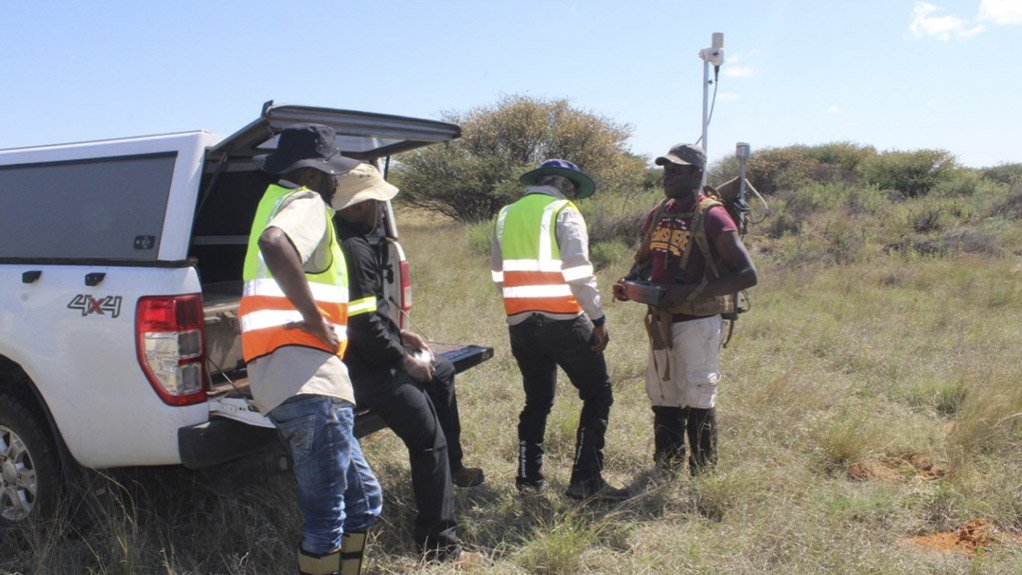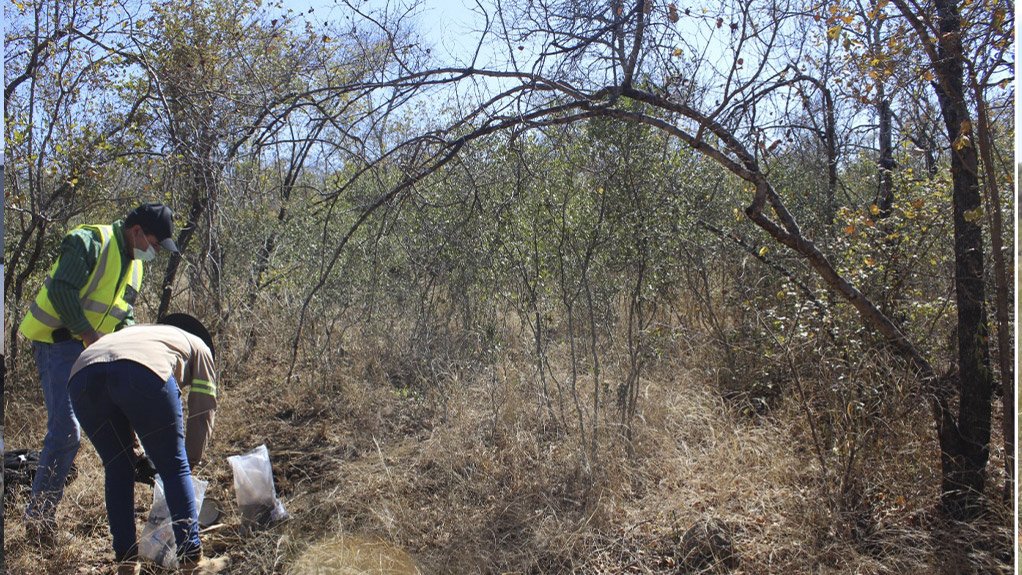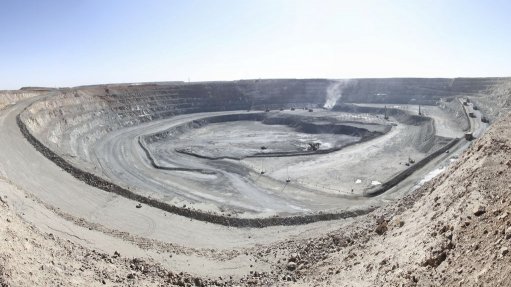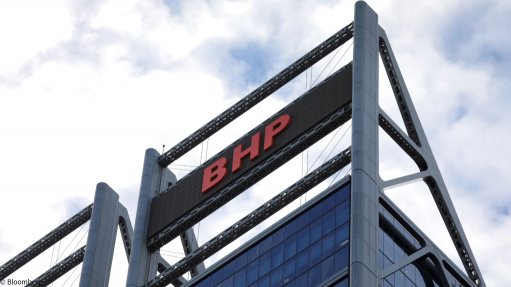Council for Geoscience implores mining companies to share historical data in efforts to revive exploration
Many of South Africa’s 53 mineral and metal types remain unexplored, particularly in the Northern Cape, despite a 130-year legacy of mining and a rising global need for critical minerals and metals for decarbonisation and clean energy technologies.
The Council for Geoscience (CGS) attributes the low levels of exploration to a lack of geoscientific data at a requisite scale to inform investment decisions, which is, in turn, owing to mining companies not sharing historical exploration data and the way that South African legislation is structured.
CGS CEO Mosa Mabuza says current legislation does not mandate companies to share this data as a corporate responsibility. “Of all the mining jurisdictions I know of, South Africa is the only one that does not have historical data available to view,” he explains.
Mabuza adds that despite companies having data as old as 100 years, it is not contained in a central repository; while some companies have submitted their exploration data voluntarily, others have had to be challenged in court.
While the CGS itself aims to increase the 1:50 000 mapping footprint of the country from 9% to 14% in the next few years, including through mapping of prospecting corridors such as the Garamokoka anomaly in the North West, Kenhardt in the Northern Cape, Kleinfontein in Gauteng, Giyani in Limpopo and Ntaba ye Ntsizwa in the Eastern Cape, public funding to support these programmes is not in abundance, as the fiscus grapples with a high debt bill and lower-than-expected revenues.
As per government’s Exploration Strategy for the Mining Industry, published in 2022, the country targets attracting a 5% share of global exploration expenditure by 2025.
Global exploration expenditure is estimated to be about $18-billion by 2025, therefore, South Africa aims to claim $900-million of this expenditure by 2025.
However, for this to happen, the mining industry will have to collaborate with government on various research and development initiatives, and invest in the exploration sector, which comes with its own challenges of access to capital, electricity shortages and lack of infrastructure in many regions.
In turn, it is government’s responsibility to create an investor-friendly environment through efficient regulation and licensing and to promote South Africa’s mining industry as an investment destination of choice.
Mabuza says the Department of Mineral Resources and Energy has issued in excess of 60 000 exploration permits, with many companies having prospecting rights but not exploring.
Instead of trying to put a cadastre information system in place which, for example, Namibia has done, to make geological data publicly available, Mabuza says the answer lies in first mobilising resources to support exploration activity, since banks are often not keen to provide this high-risk funding.
“Once we have had a few successes, companies will gain confidence in junior exploration and start working to realise projects,” he explains.
Mabuza points out that mining companies such as Orion Minerals have managed to aggressively invest in exploration and raise capital, despite the difficult environment.
“Let us focus on companies with prospecting rights and make exploration for them possible,” he avers.
CGS highlights that Namaqualand is prospecting for copper, which has remained largely unexplored. Mabuza is confident of the significant exploration opportunities inherent in the geo-logy of South Africa, saying that these new massive discoveries could ensure South Africa is a mining-driven economy for the next century.
He believes that industry can do more to create a measurable system of South Africa’s mineral endowments by communicating with government. “Where the environment is created for more private sector engagement and the opportunity to raise concerns, we will be closer to finding real solutions.”
Commenting on this, Orion MD and CEO Errol Smart says “the regulator is not our champion” and that there are often situations where it is industry versus the regulator, owing to an “unaddressed trust deficit”.
He wishes to see a clear, transparent, efficient and predictable regulatory system. For example, Smart explains that if Orion were to apply for a mineral right in Springbok, there may be an outcome after six months, while the same mining right application in other towns and provinces would have different outcomes and certainly different timelines for these outcomes. “We need to be sure we can achieve a certain outcome” he emphasises.
Smart suggests there are “other ways” to get things moving, such as government supporting the establishment of refineries and processing plants, since companies will want to start feeding into these.
“You know there is something wrong with the industry if you, as an explorer, employ more lawyers than geologists. Something has to change,” Smart says.
He adds that to explore in South Africa is not impossible, but certainly hard. Smart suggests that it would help if government did not take so long to approve prospecting and mining rights, which are currently severely backlogged.
Contrary to Mabuza’s belief in the primacy of the need to financially support exploration, in the effort to crowd in further exploration, Smart stresses the importance of a management system from government – a mining cadastre system – which he believes is among the shortcomings of South Africa compared with other global mining jurisdictions.
“Such a system would provide transparency, which is necessary to gain exploration investment. This is especially the case with greenfield exploration, which requires considerable capital and long lead times, and therefore, security of tenure,” he states.
Also commenting from an industry perspective, Minerals Council South Africa CEO Mzila Mthenjane says mining companies are unhappy about conditions under which they operate, including all the demands that have to be managed from all spheres.
He believes a good starting point to be more investment in infrastructure, since mining companies need railways, roads and reliable energy to undertake exploration and expansion.
Additionally, Mthenjane says the 5 000 backlogged exploration permits are diminishing companies’ budgets for exploration, with administrative costs far outweighing what could have been available for drilling and geo-science, making the exploration effort all the more unviable.
He also states that regulatory duplication and inconsistencies need to be resolved, including uncertainty on land claims and labour militancy.
“We need to sort out industry fundamentals of energy and infrastructure, and fix the basics,” Mthenjane explains, adding that while mining companies have often helped build municipal capacity to deliver these services, juniors are not able to do that.
On the financing topic, Mthenjane says if bankers and insurers are not available for funding, companies need to look among themselves for exploration funding.
African Exploration Mining Finance Corporation CEO Lemogang Pitsoe adds that exploration spend in South Africa and other African countries has often had to come from foreign sources, however, this means the countries are unable to control the mix of minerals that are being produced.
“We are not putting money ahead of our game. You cannot find copper if you are not searching for it,” he says, adding that the country needs more collaborative leadership to this end.
Since exploration is risky and only good geology would considerably de-risk a project, Mabuza says the CGS last year launched an online data portal which has since attracted divergent views.
Although the council remains legally empowered to undertake exploration, it has been struggling with the modalities of undertaking exploration, despite its “first mover” advantage.
He concludes that the country’s high-quality geology is at odds with its level of greenfield exploration, but the council is doing its best to bring to the fore the discoveries it continues to make.
Comments
Press Office
Announcements
What's On
Subscribe to improve your user experience...
Option 1 (equivalent of R125 a month):
Receive a weekly copy of Creamer Media's Engineering News & Mining Weekly magazine
(print copy for those in South Africa and e-magazine for those outside of South Africa)
Receive daily email newsletters
Access to full search results
Access archive of magazine back copies
Access to Projects in Progress
Access to ONE Research Report of your choice in PDF format
Option 2 (equivalent of R375 a month):
All benefits from Option 1
PLUS
Access to Creamer Media's Research Channel Africa for ALL Research Reports, in PDF format, on various industrial and mining sectors
including Electricity; Water; Energy Transition; Hydrogen; Roads, Rail and Ports; Coal; Gold; Platinum; Battery Metals; etc.
Already a subscriber?
Forgotten your password?
Receive weekly copy of Creamer Media's Engineering News & Mining Weekly magazine (print copy for those in South Africa and e-magazine for those outside of South Africa)
➕
Recieve daily email newsletters
➕
Access to full search results
➕
Access archive of magazine back copies
➕
Access to Projects in Progress
➕
Access to ONE Research Report of your choice in PDF format
RESEARCH CHANNEL AFRICA
R4500 (equivalent of R375 a month)
SUBSCRIBEAll benefits from Option 1
➕
Access to Creamer Media's Research Channel Africa for ALL Research Reports on various industrial and mining sectors, in PDF format, including on:
Electricity
➕
Water
➕
Energy Transition
➕
Hydrogen
➕
Roads, Rail and Ports
➕
Coal
➕
Gold
➕
Platinum
➕
Battery Metals
➕
etc.
Receive all benefits from Option 1 or Option 2 delivered to numerous people at your company
➕
Multiple User names and Passwords for simultaneous log-ins
➕
Intranet integration access to all in your organisation























